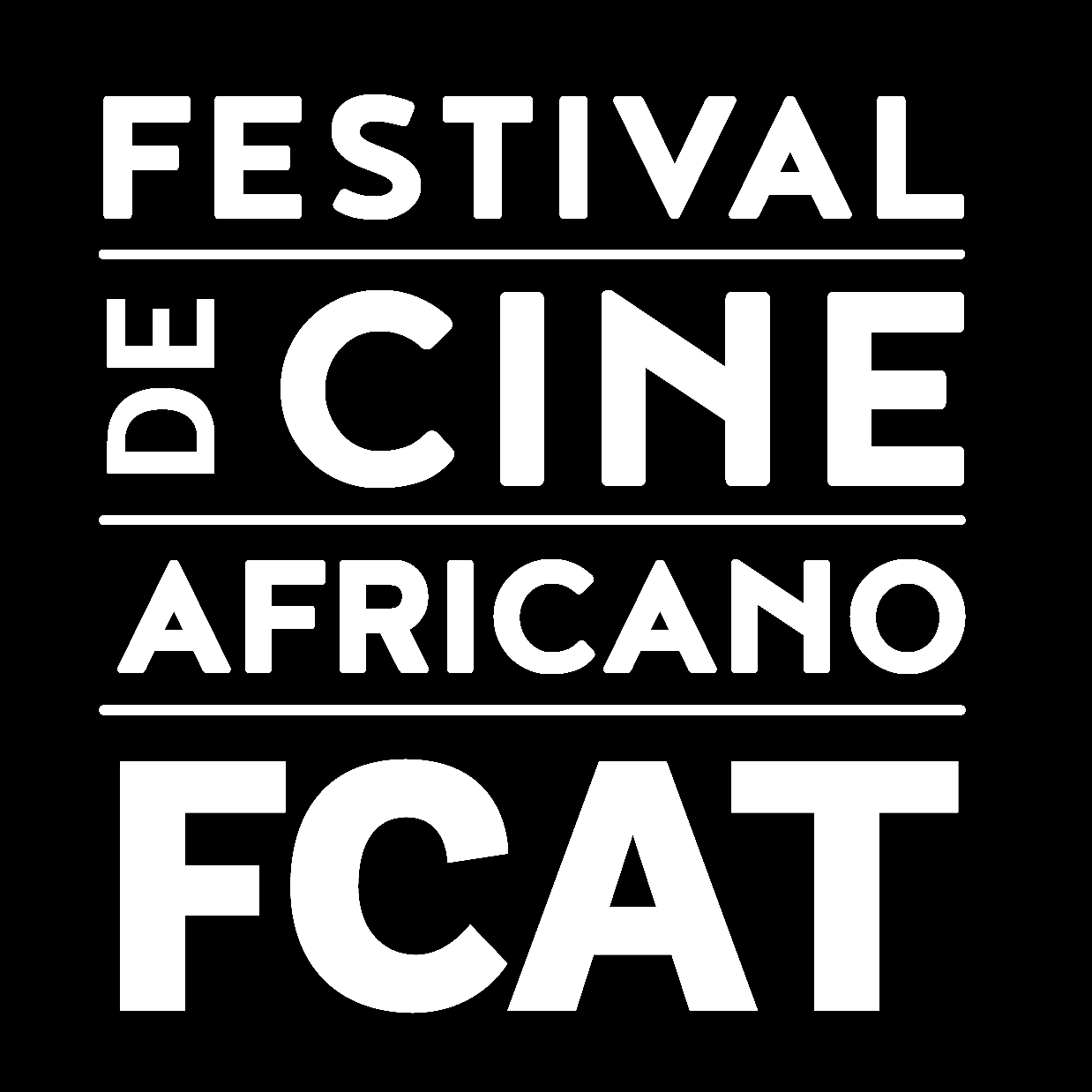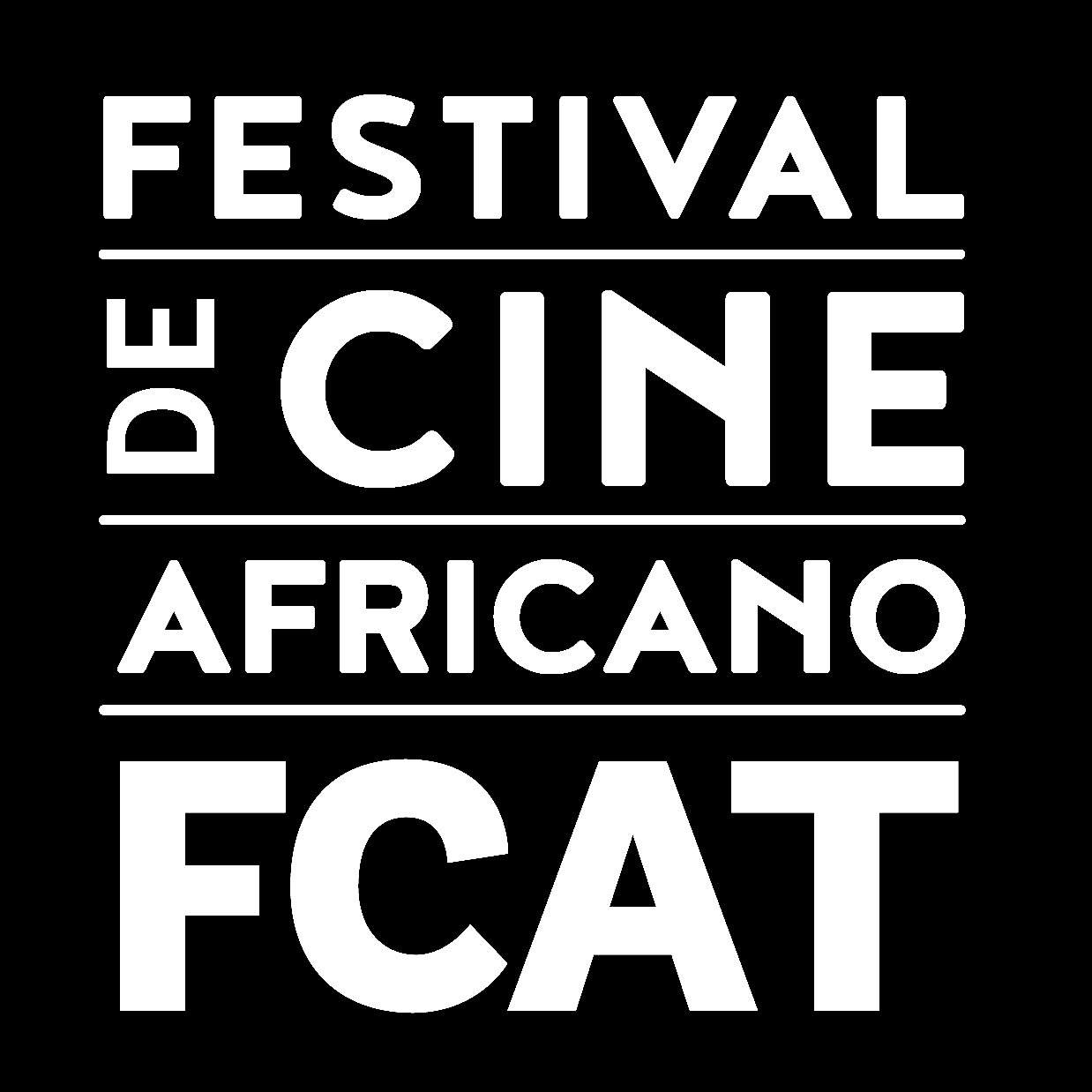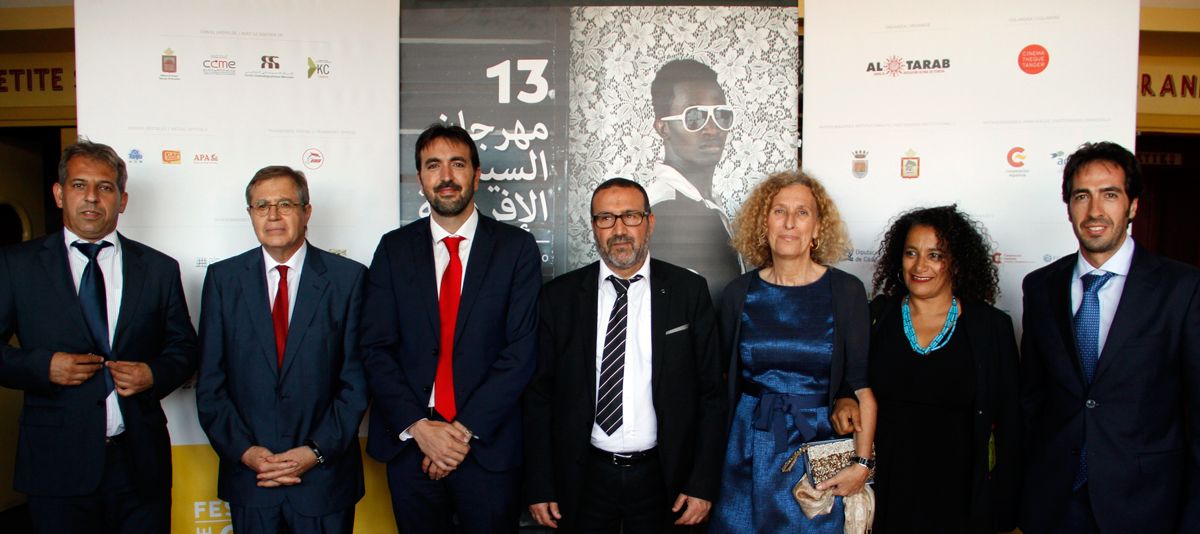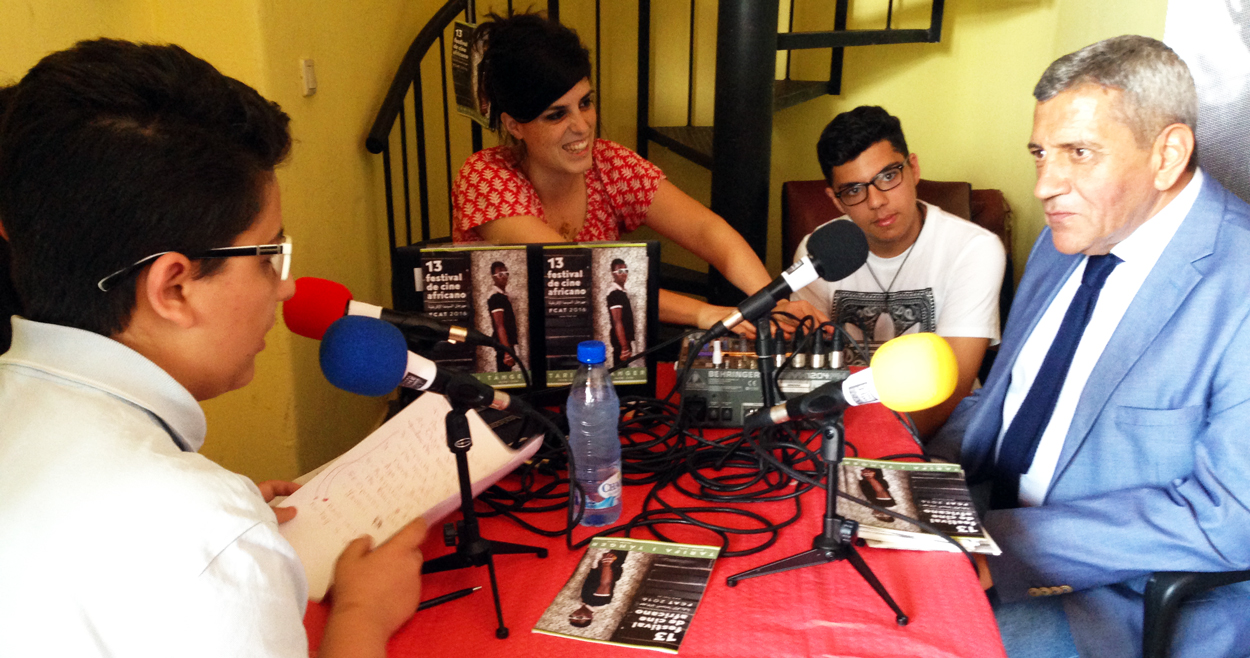The event is being staged simultaneously in Tangier, Morocco and in Tarifa, Spain from 26 May until 4 June 2016. The event is giving cinematic explorers a chance to see an insider’s view of life on the African continent through a selection of 76 films from 26 countries.
The 13th edition of the African Film Festival was inaugurated on 26 May in Tangiers (Morocco) and on 27 May in Tarifa (Spain). The two cities are located in the northern and southern shores of the Strait of Gibraltar and are separated by only 14 kilometers of ocean. Coined by its sponsors as a ‘bridge between cultures’, this festival is the first cultural event in the history of the Strait taking place simultaneously on both shores, the African and the European.
During 9 days, the event celebrates Africa’s finest film artists by showcasing the richness and diversity of African films in their original languages, with Spanish and French subtitles. The film programme consists of 76 titles produced in 17 African countries – among which Morocco with 11 films, Algeria and Egypt with 5 films, South Africa and Tunisia with 4 films, Senegal with 3, and Madagascar and Mauritius with 2. In addition, films from 9 non-African countries will also be screened.
The official inauguration in Tarifa was attended by almost 300 people, including representatives from both cities, provincial administrations as well as the festival’s main sponsors. During the inauguration act, both the mayor of Tarifa, Francisco Ruiz, and the spokesperson of Tangier’s municipality, Mohammed Bouzidane, stressed the importance of the festival as an opportunity to reunite both continents through cinema, and as a means to narrow the gap existing between them in terms of mutual knowledge. In her speech, the festival’s director, Mane Cisneros, added that only reciprocal knowledge can enable understanding between peoples, a precondition for freedom and respect.
“The festival will use culture to bring back together that which borders have separated”. Mane Cisneros
FCAT 2016 was inaugurated with the screening of the film l’Orchestre des aveugles (Blind Men’s Band, Morocco/France, 2014) by Mohamed Mouftakir. The film narrates the story of Houcine, the leader of a popular band and a fan of the king Hassan II. His music band is particular: male musicians are forced to pretend to be blind in order to play in Moroccan conservative family homes at parties reserved for women.
Inauguration in Tangier
The inauguration in Tangiers took place at the Cinémathèque de Tanger, the city’s cultural lighthouse. The Cinémathèque used to be the Cinéma Rif, a meeting point of the former Spanish colony. After its closure for renovation, it re-opened in 2007 and now houses two screening halls as well as an archive with more than a thousand films produced in colonial and post-colonial times, not only in Morocco but also in other Arab countries. The inaugural act saw the participation of the Cinémathèque’s director, Malika Chaghal, and Tangier’s municipal and regional representatives, including the mayor Mohamed El Bachir Abdellaoui and Souad Zouini, the representative of the Association for the Promotion and Development of Northern Morocco (APDN). The Spanish mayor of Tarifa, Francisco Ruiz, also attended together with the municipal councillors for culture, communications and tourism. Arturo Reig, Consul of Spain in Tangier also participated.
Cinema and more
Many film critics say that the cinemas of Africa have consistently delivered some of the most impressive, urgent, and engaged films in contemporary world cinema. The Festival will provide Spanish and French-speaking audiences an opportunity to discover a selection of these films through two competitive and five non-competitive sections.
13 Feature length films and documentaries will compete for a prize in a film section entitled Hyperopia or farsightedness. The majority of the competitive films’ authors will attend the festival and participate in the different activities aiming to contextualize the films and their contents for the festivalgoers and attending journalists. Hicham Elladdaqi will present his documentary film La Route du pain (The Bread Road, Morocco, 2015) as well as Aicha Boro, filmmaker of Farafin Ko : une cour entre deux mondes (Farafin Ko: A Courtyard between Two Worlds, Burkina Faso, 2014). Three South African filmmakers will also be in attendance: Sibs Shongwe – La mer presenting Necktie Youth (South Africa, 2015), Oliver Hermanus with The Endless River (South Africa, 2015) and Teboho Edkins presenting Coming of Age (South Africa/Lesotho, 2015). Lastly, David Constantin will present his film Lonbraz Kann (In the Shade of Sugar Canes, Mauritius, 2014) while Rama Thiaw will participate with her latest documentary The Revolution Won’t Be Televised (Senegal, 2016).
13 short films (both fiction and documentary) will compete in the section ‘In short’. Two short film authors will participate in the festival: Raimundo Bernabé Nnandong filmmaker of Aricó caliente (Cooked Beans, Equatorial Guinea, 2015) and Mbaye Fall, filmmaker of Xaar Yallah (Waiting for God, Senegal, 2015).
In addition, there will also be five non-competitive sections: ‘AfroScope’, an eclectic film selection about contemporary African realities; and ‘Africa in rhythm’, showcasing films about African dances and musics.
Both Tarifa and Tangier will share a selection of films curated by the Cinémathèque de Tanger. This non-competitive section entitled ‘If Tangier were sung to me’ consists of three films directed by Spanish filmmakers: Invisible Mothers (2013), Emotional map of Tangier (2015) and Tanger Gool (2016).
A special section entitled ‘Estrechando’ (a game of words in Spanish meaning tightening as well as straitening, in reference to the Strait of Gibraltar) will be dedicated to stories taking place in both shores of the Strait. Lastly, a section on ethnographic cinema, ‘We the aliens’, will showcase a selection curated by students from the Faculty of Anthropology of the University of Seville.
Several parallel activities are also scheduled to take place. Approximately 1,200 school children from Tarifa’s province (Cadiz), will participate in the festival’s ‘Learning Space‘, where they will watch a selection of African films and short films complemented by Q&A sessions during morning sessions scheduled from Monday 30 May to Friday 3 June.
Also noteworthy is Radio de las dos orillas (‘Radio of the two shores‘), which started in Tangier on the first day of the festival. This workshop aims to train students from Spain and Morocco in radio journalism, while they conduct the journalistic coverage of the festival through airwaves.
Film enthusiasts will be given the opportunity to exchange opinions and ask questions to the participating filmmakers during the festival’s recurring ‘Film appetizers‘, daily informal meetings taking place at 13:00 at the Hotel Riad in Tarifa and open to the public and the media. Another forum will be provided by the ‘Palaver Tree‘, a training series on African cinematography, its history and the status of the film industry in particular countries: Morocco and South Africa. Lastly, the festival’s programme includes two visual arts exhibitions, concerts, thematic parties each night and activities for families.
Broad support
The festival’s main source of support comes from the city councils of Tarifa and Tangiers, the Cadiz provincial council, the Tangiers, Tetouan and Alhucemas Wilaya (provinces) and the Northern Morocco Development Agency (APDN).
To date, FCAT’s main sponsors are the Spanish Cooperation Agency (AECID), the ACERCA training programme, the International and Ibero American Foundation for Administration and Public Policies (FIIAPP) and Aqualia. In addition to these, sponsors are also the Spanish branch of Chaabi Bank, the Chaabi Bank Foundation and the Foundation for the Three Cultures of the Mediterranean.
About the organisers
The festival is organized in Spain since 2003 by the ONG Al Tarab, which promotes African cinematography in Spain and Latin America, thus contributing to a better mutual understanding as well as to the development of culture and film industries.




